Intel Core Ultra 7 155H Performance
The Intel Core Ultra 7 155H is very different than the Core i7-1360P that was in the previous generation.
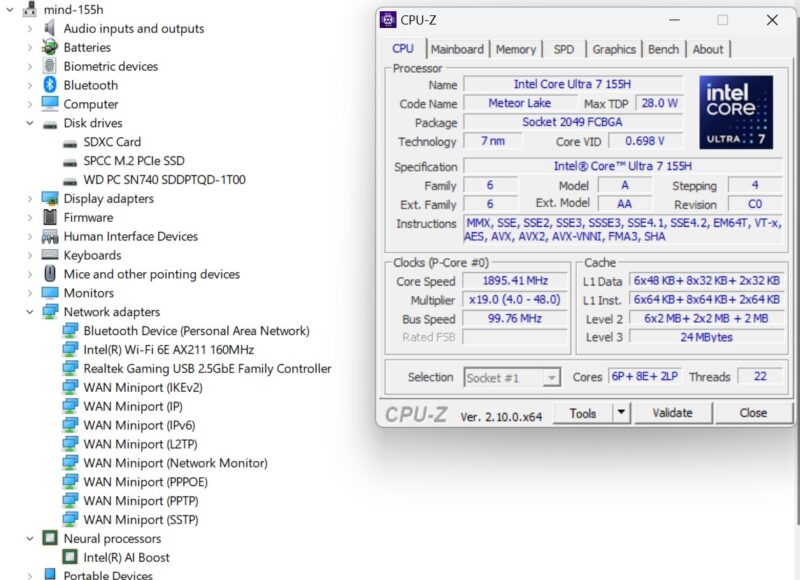
This is an Intel Meteor Lake generation CPU, which means we get a NPU for AI inference and a lot of cores. There are six performance cores, eight efficient cores, and two low-power island efficient cores. The generation of CPUs after this is Intel Lunar Lake which is the generation where core and thread counts shrink with new cores that do not have Hyper-Threading. For this generation, we have 16 cores and 22 threads.
Python Linux 4.4.2 Kernel Compile Benchmark
This is one of the most requested benchmarks for STH over the past few years. The task was simple, we have a standard configuration file, the Linux 4.4.2 kernel from kernel.org, and make the standard auto-generated configuration utilizing every thread in the system. We are expressing results in terms of compiles per hour to make the results easier to read:
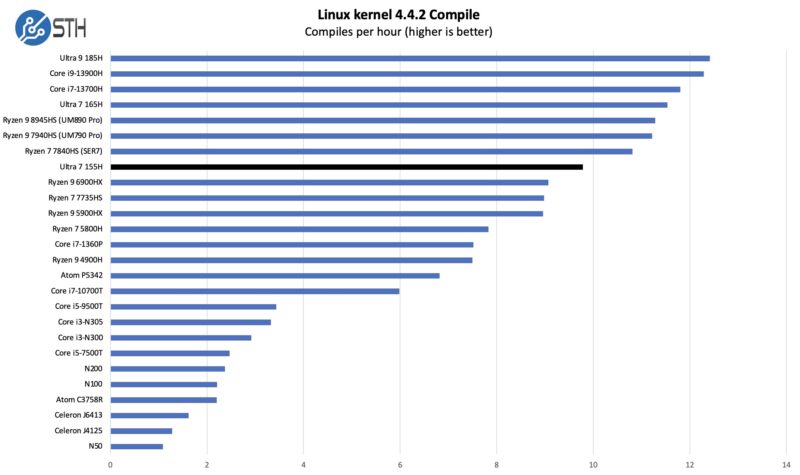
Here the performance of the Intel Core Ultra 7 155H outpaces the Core i7-1360P as we might expect. At the same time, the CPU performance may have a longer bar on the chart, but the perceptible feel is not much different when it comes to the CPU performance.
7-zip Compression Performance
7-zip is a widely used compression/ decompression program that works cross-platform. We started using the program during our early days with Windows testing. It is now part of Linux-Bench.
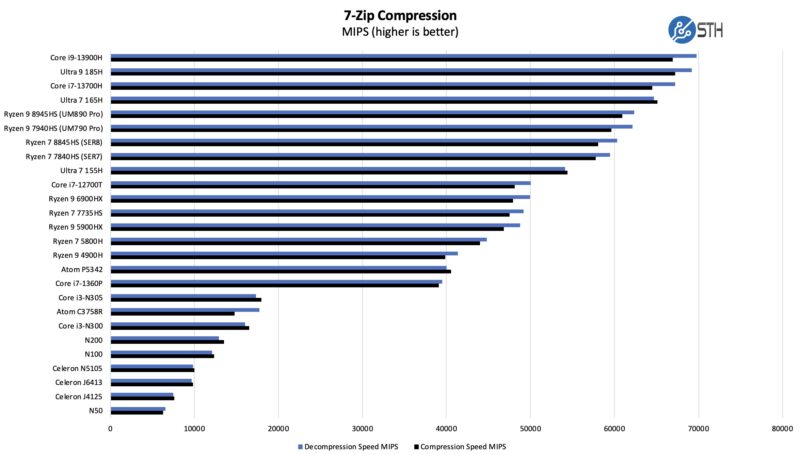
Running through our multi-core workloads, we are going to see a similar pattern. There are many CPUs that we have tested that target this general performance band, so while there may be many CPUs between the Khadas Mind V1 and V2 options, the actual difference in performance is close.
OpenSSL Performance
OpenSSL is widely used to secure communications between servers. This is an important protocol in many server stacks. We first look at our sign tests:
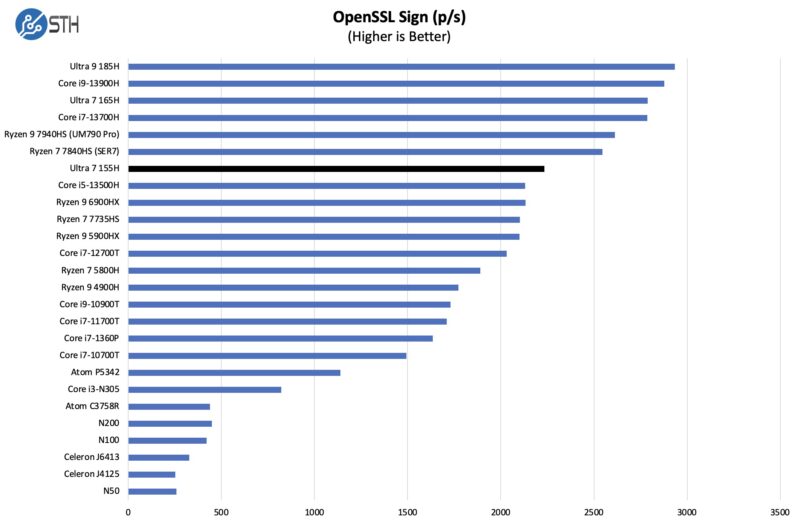
Here are the verify results:
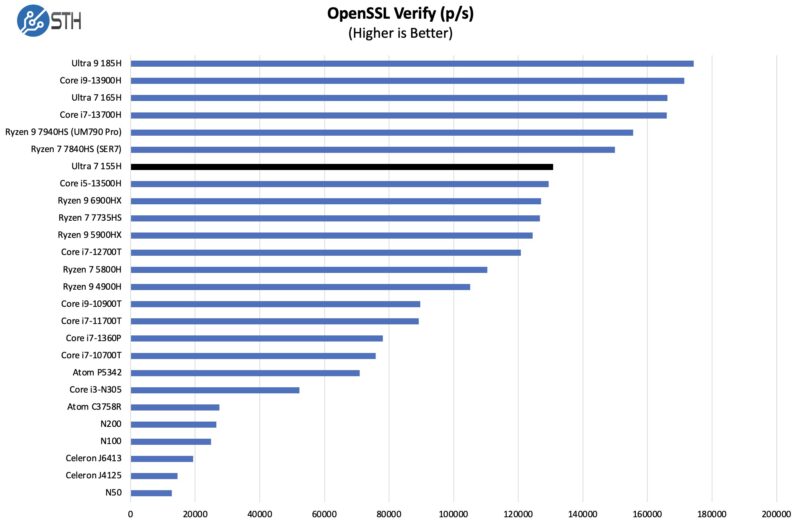
Again, we see some similar results in Linux, but when we get to the Windows 11 Geekbench results, things get different, and a lot more exciting.
Geekbench 5 and 6 Results
Switching over to Windows 11 for Geekbench, we see an interesting pattern. With Geekbench 5, the single core performance is actually lower, while the multi-core result is higher. As core counts increase, Geekbench 5 tends to be a better multi-core performance indicator than Geekbench 6.
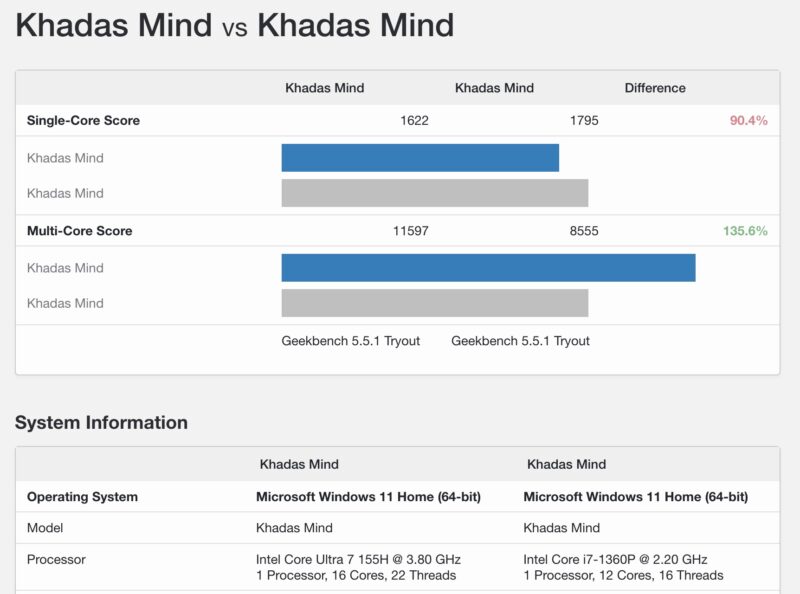
Below is the Geekbench 6 result. Going from 12 to 16 cores and 16 to 22 threads yields a lower result. Again, at higher core counts, Geekbench 5 is better, and we see this all the time on server CPUs. Geekbench 6 is not targeted at higher core count systems for its multi-core performance numbers.
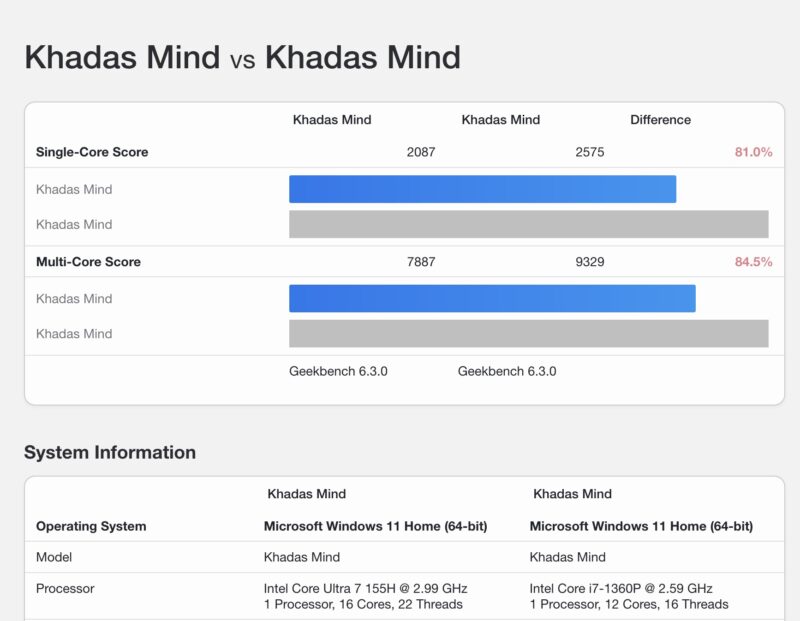
CPU wise, it is perhaps an upgrade, but whether it tracks with our Ubuntu Linux results above, or the Geekbench Windows results, the CPU is close. The GPU on the other hand is massively better in this new generation. Just for some sense, here is the V1 versus V2 Khadas Mind.
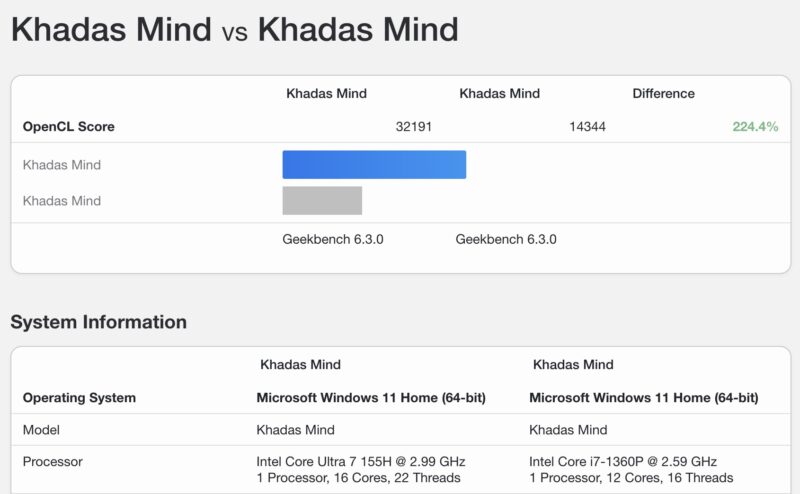
With Meteor Lake, we get a really nice iGPU performance. To me, this is one of the biggest wins of the entire platform. With Meteor Lake’s Intel Arc graphics, playing eSports titles is more possible like it has been on the AMD side and is more noticeable than a +/- 10-20% CPU performance delta.
Next, let us get to the power consumption and noise.

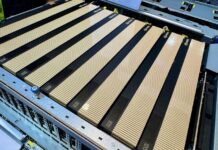
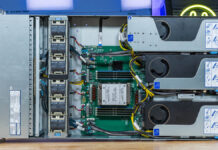
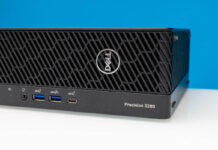
Well, this seems pretty useless… I just bought a UM790 Pro last week for $399. That’s like less than half the price of this thing, it’s about 10% faster, and it’s quieter.
Your KLL section is right. They’re pricing this way too high for what it is. I don’t get the battery for standby portability unless they’re going after a microscopic market
On the Geekbench graphs, could you put a V1 and V2 on the labels? It is really confusing the have both called Khadas Mind.
As someone who uses mini PC’s as small servers, I would love to see little batteries like this one become common – it’s a built-in UPS that is cheaper, much more efficient, and compact than external UPS’s.